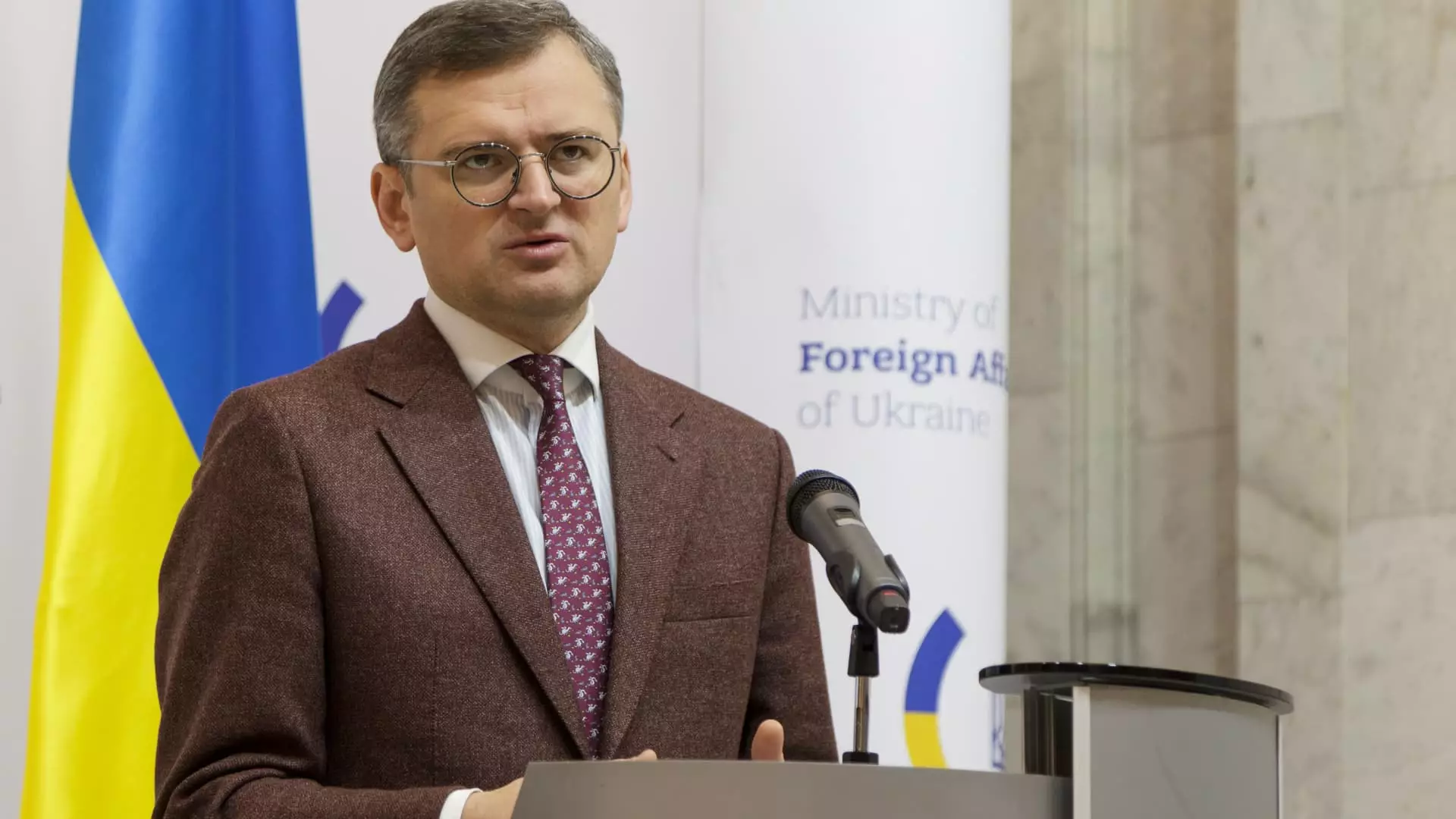As the conflict between Ukraine and Russia unfolds, the stakes have risen dramatically not just for the two nations directly involved, but also for the broader European landscape. Former Ukrainian Foreign Minister Dmytro Kuleba expressed grave concerns regarding the potential repercussions for the European Union if Ukraine does not succeed in its struggle against Russian aggression. Kuleba’s stark warning that “if Ukraine fails, war will come to the streets of European cities” encapsulates the urgency of the situation. His statements signify a critical understanding: the post-war ramifications will ripple well beyond Ukraine’s borders.
The nuanced dynamics of military engagements reveal a strategic calculation by Russian President Vladimir Putin. Kuleba pointed out that, while Putin currently lacks the capacity to manage multiple conflicts simultaneously, he is nonetheless equipped to focus resources on one war at a time. In this context, should Ukraine succumb to Russian advances, it could potentially place Europe directly in the crosshairs of Putin’s ambitions. Thus, the outcome of this conflict is not solely about territorial integrity but also about the very fabric of European security.
Ukraine’s aspiration for NATO membership has remained a contentious issue, further complicated by historical and political sensitivities among current member states. Kuleba argues convincingly that NATO membership would serve not only as a protective barrier for Ukraine but also as a deterrent mechanism for future Russian aggression. He contends that while proposed security guarantees might momentarily soothe tensions, they lack the robustness to prevent a future resurgence of war, particularly as these guarantees have often been underwhelming or previously overlooked.
With geopolitical tensions at their highest, Kuleba emphasizes the necessity of concrete action rather than ephemeral promises. The former minister expressed confidence that if serious discussions were initiated regarding Ukraine’s NATO membership, the prevailing sentiment would likely lean towards a definitive path forward. However, the road to inclusion remains fraught with obstacles due to the requirement for unanimous approval from existing member states, fostering an environment of hesitancy and indecision.
The return of President Donald Trump to the national political stage adds another layer to this intricate geopolitical puzzle. Following his conversations with Ukrainian President Volodymyr Zelenskyy, Trump has indicated a desire for an immediate ceasefire in the ongoing conflict. Kuleba’s observation that the resolution rests largely with Moscow rather than Kyiv underscores the complexities of negotiation; peace cannot be simply wished into existence without genuine engagement from Russian leadership.
Trump’s criticism of President Biden’s policy changes—specifically regarding the U.S. provision of ATACMS to Ukraine—raises questions about the direction of American foreign policy and its potential repercussions on the conflict. The contention that Biden’s strategy escalates hostilities rather than mitigates them could complicate Ukraine’s position further, particularly if the U.S. shifts its stance dramatically under a new administration.
The underlying message conveyed by Kuleba is clear: Ukraine cannot afford to be passive while the conflict escalates. The ongoing threats from Russia, illustrated by recent military assaults targeting Ukraine’s energy infrastructure, demand a proactive response. As Kuleba aptly noted, allowing the enemy to gain ground unchallenged poses significant risks to Ukraine’s sovereignty.
The war in Ukraine stands at a crucial intersection of local, regional, and global forces. Each decision made within the context of this conflict, from Ukraine’s NATO aspirations to U.S. policy shifts, holds overwhelming significance for Europe as a whole. As the situation remains fluid, Dmytro Kuleba’s warnings highlight the imperative for collective vigilance and proactive strategies among Western allies. The future stability of Europe may hinge on the outcome of Ukraine’s battle, underscoring the interconnectedness of national security policies and the dire necessity of unity in the face of external threats.

